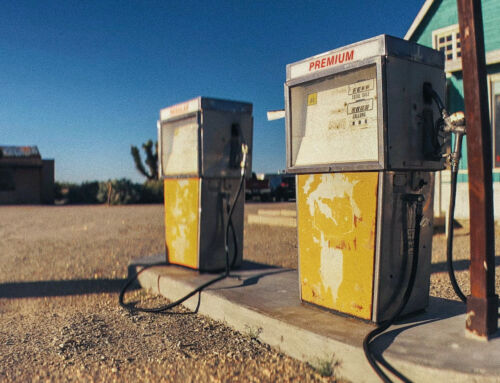View by Topic
Recent Articles
-
Congress Blocks California’s Gasoline Car BanSaturday, May 31st, 2025
-
EPA Will Keep Current Limits for “Forever Chemicals” in Drinking WaterSaturday, May 24th, 2025
-
Court Indefinitely Pauses SEC Climate Rule LitigationSaturday, May 17th, 2025
-
Maryland is About to Regulate Mold But is the Cart Before the HorseSaturday, May 10th, 2025
View by Month/Year
“Green Building Law Update” Headlines
Recent Articles & News from
Stuart Kaplow’s blog
at GreenBuildingLawUpdate.com
- Congress Blocks California’s Gasoline Car Ban: A Legal and Policy Analysis June 1, 2025
- EPA Will Keep Current Limits for “Forever Chemicals” in Drinking Water May 25, 2025
- Court Indefinitely Pauses SEC Climate Rule Litigation May 18, 2025
- Maryland is About to Regulate Mold: But is the Cart Before the Horse? May 11, 2025
Subscribe to the Green Building Law Update!
Stuart Kaplow brings his expertise and extensive experience to the table with his unique digital publication, "Green Building Law Update". Subscribers receive regular updates to keep them informed about important issues surrounding Environmental Law, Green Building & Real Estate Law, as well as the emerging demand for Environmental Social Governance (ESG).
Get fresh content through the lense of Stuart Kaplow's cutting-edge expertise, innovative commentary and insider perspective. Don't miss another issue! Subscribe below.

Do Something about Slavery in Your Business Supply Chain
Slavery exists in 2022. There is simply no morally defensible reason for not doing everything in our power to end modern slavery.
U.S. Customs and Border Protection describes in a May 17, 2022 update, that at any given time, “an estimated 40.3 million people are in modern slavery.”
That “means there are 5.4 victims of modern slavery for every 1,000 people in the world.”
“1 in 4 victims of modern slavery are children.”
Many businesses haven’t considered the problem or don’t want to believe that modern slavery could be a part of their supply chains. Others have some appreciation of the problem but don’t know how to get started addressing it.
The reality is that modern slavery is found in nearly every part of every economy in the world. Most U.S. businesses are horrified to learn that their supply chain includes products and materials made by slaves someplace in the world. A recent confidential self-assessment at a suburban Maryland construction project found not only slave labor in producing multiple construction materials in the supply chain but also forced labor at the site. And earlier this year U.S. Customs and Border Protection officers seized four shipments of palm oil at the port of Baltimore destined for a local bakery because the palm oil was produced in Malaysia with modern slavery.
We work with our clients to examine their business practices in the fight against this atrocity and to increase awareness in the broader private sector we regularly blog on the efforts by businesses to create a slave-free world, including a post, Modern Slavery a Key ESG Factor.
We believe strongly that all organizations, whether in pursuit of the S in ESG or in striving to repair the world, must examine and assess their business practices now.
And it is clear that in 2022 governments and businesses are responding to modern slavery in ways not before seen. Two good examples may be:
Acknowledging the prevalence of slavery in the construction sector, the State of Maryland recently adopted the following with respect to slavery in the construction of public buildings with state funds, including schools in the state:
302.4 Additional Requirements.
H. Be designed and constructed with no goods produced from forced labor in supply chains. The project seeks to address human rights, protecting against social justice abuses (the “S” in ESG) at every stage, from the extraction of raw materials to building erection. For guidance, refer to the current version of LEED BD+C: IPpc 144 Social Equity within the Supply Chain credit.
Maryland Green Building Program, page 11, as required by State Finance and Procurement, Maryland Code Ann. Sec. 3-602.1, effective March 17, 2022
And noting that the global solar panel supply chain relies heavily on government forced labor from China, a contract for the installation of solar panels on a new privately owned building in Washington, DC, where that owner would not accept the moral equivalence of reduced carbon with the gross violations of human rights in Xinjiang, China (where government forced labor is on top of the 40.3 million people in modern slavery) contained the following:
8. Supply Chain.
b. The Subcontractor expressly represents and warrants to the Owner that with respect to the Solar Panels and any component part thereof, the supply chain will comply with the Federal Uyghur Forced Labor Prevention Act, including providing express language overcoming the presumption under the (still being phased in) law that all “products produced in the Xinjiang region [where more than 80% of the world’s solar panels are sourced] are barred from importation into the United States.” For the avoidance of doubt, the Solar Panels are not to have been made, raw materials sources, labor provided or component parts manufactured in the Xinjiang region of China.
An increasing number of clients are adopting express modern slavery statements, including not only those who must comply with the UK and Australian modern slavery acts but others who want to make a difference and make that public.
We have worked in a broad breadth of industries in supplier due diligence providing staff awareness and education, drafting procurement policies including creating supplier codes of conduct and modern slavery questionnaires, all so that our clients do not need to expend internal resources to become expert in assessing and managing the risks of modern slavery.
As businesses consider modern slavery in 2022, a paraphrasing of Rabbi of Tarfon, from the first century seems somehow appropriate, “it is not your responsibility to finish the work of repairing the world, but you are not free to desist from it either.”
All businesses, whether in pursuit of the S in ESG or in striving to repair the world, must assess their business practices now.









